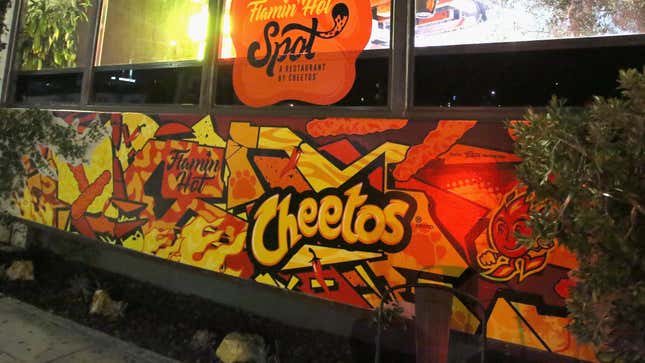[UPDATED] Turns Out Allegedly Lying About Inventing Flamin' Hot Cheetos Is a Very Lucrative Career Move
Latest![[UPDATED] Turns Out Allegedly Lying About Inventing Flamin' Hot Cheetos Is a Very Lucrative Career Move](https://img.pastemagazine.com/wp-content/juploads/2024/01/b871fac2db52a6f4f01e949993e398ff.jpg)

Sometime in recent years, you might have heard the “rags-to-riches” story of the man named Richard Montañez, who says he was working as a janitor at Frito-Lay’s Rancho Cucamonga plant when he ambitiously pitched his idea for a new spicy salty snack to the company’s chief executive. Eventually, after Mexican-American Montañez fought his way up the corporate ladder, his snack idea would become the wildly popular Flamin’ Hot Cheetos. His story has become so widely known that Eva Longoria is actually set to direct a biopic about Montañez’s life.
There’s just one problem—according to reporting from the Los Angeles Times, approximately zero parts of Montañez’s story are actually true. “None of our records show that Richard was involved in any capacity in the Flamin’ Hot test market,” wrote Frito-Lay in a statement to the LA Times. “We have interviewed multiple personnel who were involved in the test market, and all of them indicate that Richard was not involved in any capacity in the test market.”
Welp.
Turns out Flamin’ Hot Cheetos were actually created by a team of “hotshot snack food professionals” in 1989—before Montañez could have been involved—and a junior employee named Lynne Greenfeld was the one who developed the “Flamin’ Hot” name and unveiled the line of products. “It is disappointing that 20 years later, someone who played no role in this project would begin to claim our experience as his own and then personally profit from it,” said Greenfeld, who now goes by Lemmel.
-

-

-

-

-

-

-

-

-

-

-

-

-

-

-

-

-

-

-

-

-

-

-

-

-

-

-

-

-

-

-

-

-

-

-

-

-

-

-

-








































